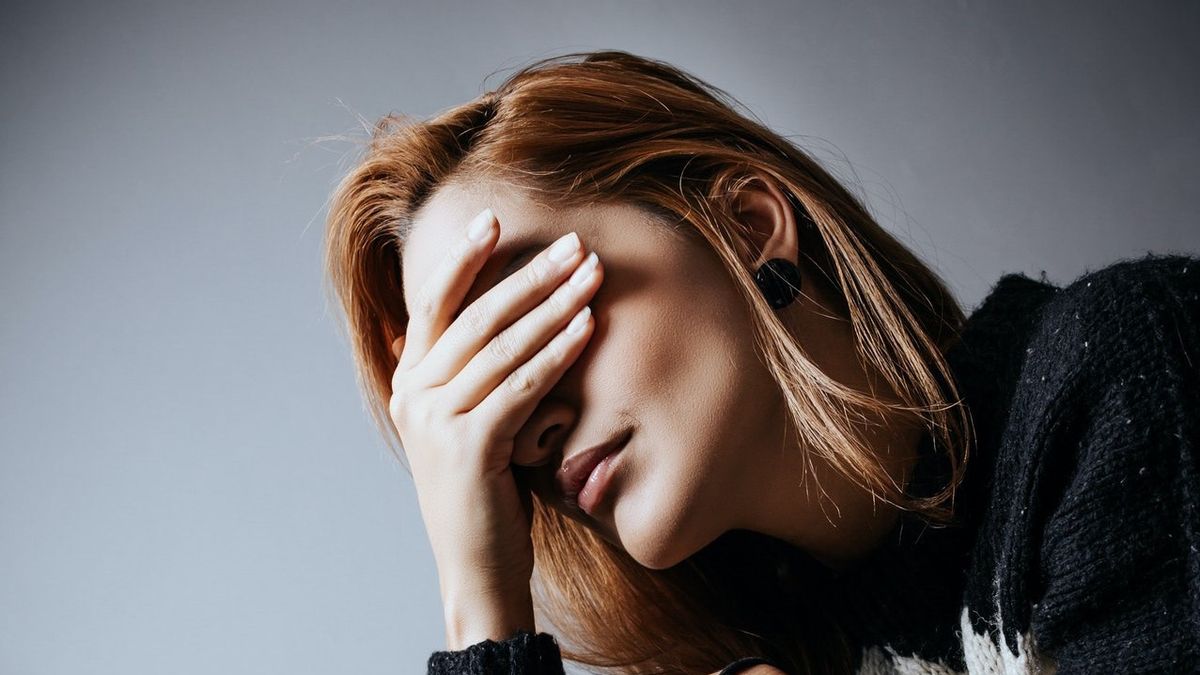Philophobia — a fear of love — can negatively affect your ability to have meaningful relationships. A painful breakup, divorce, abandonment or rejection during childhood or adulthood may make you afraid to fall in love. Psychotherapy (talk therapy) can help you overcome this specific phobic disorder.Philophobia (Fear of Falling in Love)Causes & Treatment
What is philophobia?
People who have philophobia have a fear of love. This fear is so intense that they find it difficult, sometimes impossible, to form and maintain loving relationships. “Philos” is the Greek word for loving or beloved. “Phobos” (phobia) is the Greek word for fear.
Some people believe that Queen Elizabeth I of England had philophobia. She never married and became known as the Virgin Queen.
What is a phobia?
Phobias are one of the more common anxiety disorders. People who have phobias develop extreme fears of things that won’t typically harm them. Philophobia is a specific phobia disorder. You become afraid of a certain situation: falling in love.
How common is philophobia?
It’s hard knowing exactly how many people have a specific phobia, like philophobia. Many people may keep this fear to themselves or may not recognize they have it. We do know that about 1 in 10 American adults and 1 in 5 teenagers will deal with a specific phobia disorder at some point in their lives, though.
Who is at risk for philophobia?
People designated female at birth (DFAB) are more likely to experience a phobia disorder. Risk factors include:
- Family history: Witnessing a parent or loved one struggle with a phobia or anxiety disorder may make you more likely to have the same fears.
- Genetics: Some research suggests that some people have gene changes that make them more prone to anxiety disorders and phobias.
- Other phobias: It’s common to have more than one phobia. Someone with a fear of love may also fear commitment (gamophobia), rejection or abandonment.
Why do I have a fear of love?
Often, people can trace their fear or phobia to traumatic childhood experiences. Philophobia may be a protective response. If you don’t allow yourself to develop loving feelings for someone, you lower your risk of heartache and pain.
Potential philophobia causes include:
- Previous difficult relationships: Children who experience their parents’ argumentative divorce, parental death, abandonment or child abuse may find it difficult to feel love for others. The same holds true for adults who experience infidelity, divorce, abuse or abandonment.
- Fear of rejection or abandonment: Having a parent leave you as a child can lead to a fear of love. Adults who experience repeat rejections from partners or friends may become afraid to love.
- Cultural or religious pressures: Certain cultures arrange marriages without much (if any) consideration about love. You may become afraid to love others because you feel you have no say in who your partner is. Someone who’s LGBTQ+ may fear love if their religion or culture opposes the relationship.
- Disinhibited social engagement disorder (DSED): A child who doesn’t receive attention, love and validation from a parent or another trusted source may grow up fearing love. These children tend to connect better with strangers than people who love them. DSED is a type of reactive attachment disorder.
What are philophobia symptoms?
People who fear love may react in different ways. You may:
- Be unable to have intimate relationships.
- Experience extreme anxiety when in a relationship and constantly worry about the relationship ending.
- Feel afraid of your partner or their emotions.
- Push people away or end relationships abruptly.
When you experience feelings of love, you may have these physical symptoms:
- Dizziness.
- Dry mouth.
- Extreme feeling of dread or terror.
- Nausea, vomiting, or diarrhea
- Profuse sweating.
- Rapid breathing and heart rate.
- Shaking or trembling.
- Shortness of breath
How is philophobia diagnosed?
The American Psychiatric Association’s Diagnostic and Statistical Manual of Mental Disorders (DSM) helps mental health professionals like psychologists diagnose phobia disorders based on symptoms and how they impact your quality of life.
Healthcare providers use these criteria to diagnose a specific phobic disorder like philophobia:
- Persistent fear of love that lasts for at least six months.
- Intense fear or anxiety when you feel love.
- Onset of phobia symptoms when you find yourself in a loving situation.
- Anxiety or fear that causes you to avoid giving or receiving love.
- Extreme symptoms that interfere with your ability to forge meaningful, intimate relationships.
How do providers treat philophobia?
Cognitive behavioral therapy (CBT) can help you overcome philophobia. This form of psychotherapy (talk therapy) helps you recognize thoughts and behaviors that make you afraid of love.
You may also benefit from a type of exposure therapy known as systemic desensitization therapy. Exposure therapy helps more than 90% of people who have specific phobic disorders.
It works by:
- Teaching you how to use relaxation techniques like deep breathing exercises and meditation to manage symptoms.
- Gradually exposing you to the idea of falling in love.
- Giving you real-world tasks to help you get comfortable with giving and receiving love.
What are the complications of philophobia?
A loveless life can affect your physical and mental health, putting you at risk for:
- Anxiety, depression or panic disorder.
- Erectile dysfunction (in males).
- Post-traumatic stress disorder (PTSD).
- Substance use disorder.
When should I call the doctor?
Call your healthcare provider if you experience:
- Panic attacks.
- Persistent anxiety that interferes with daily life or sleeping.
- Signs of depression or substance use problems.

Philophobia (Fear of Falling in Love)Causes & Treatment
What questions should I ask my doctor?
You may want to ask your healthcare provider:
- What’s causing this phobia?
- What’s the best treatment for me?
- Should I try psychotherapy?
- How long will I need therapy?
- Can medications help?



